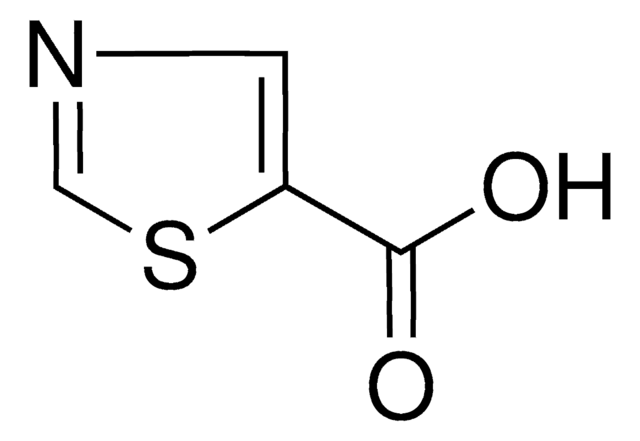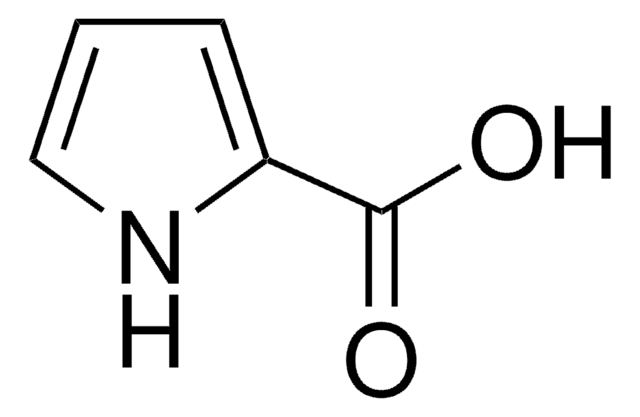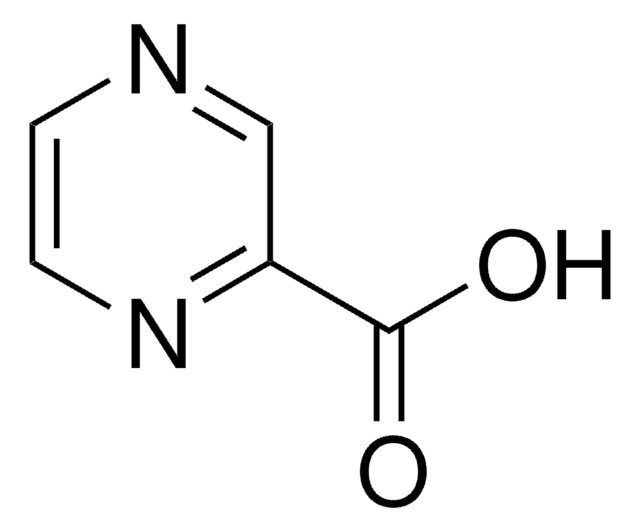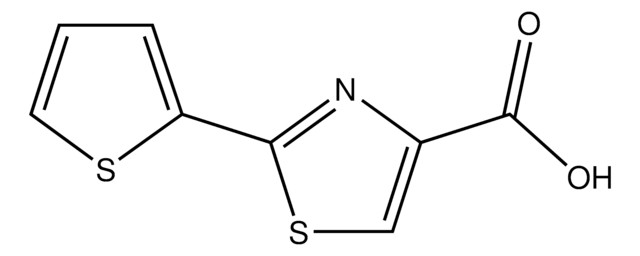734748
Thiazole-2-carboxylic acid
Se connecterpour consulter vos tarifs contractuels et ceux de votre entreprise/organisme
About This Item
Formule empirique (notation de Hill):
C4H3NO2S
Numéro CAS:
Poids moléculaire :
129.14
Numéro MDL:
Code UNSPSC :
12352100
ID de substance PubChem :
Nomenclature NACRES :
NA.22
Produits recommandés
Forme
solid
Niveau de qualité
Pf
95-118 °C
Groupe fonctionnel
carboxylic acid
Température de stockage
−20°C
Chaîne SMILES
OC(=O)c1nccs1
InChI
1S/C4H3NO2S/c6-4(7)3-5-1-2-8-3/h1-2H,(H,6,7)
Clé InChI
IJVLVRYLIMQVDD-UHFFFAOYSA-N
Vous recherchez des produits similaires ? Visite Guide de comparaison des produits
Code de la classe de stockage
11 - Combustible Solids
Classe de danger pour l'eau (WGK)
WGK 1
Point d'éclair (°F)
Not applicable
Point d'éclair (°C)
Not applicable
Faites votre choix parmi les versions les plus récentes :
Déjà en possession de ce produit ?
Retrouvez la documentation relative aux produits que vous avez récemment achetés dans la Bibliothèque de documents.
Les clients ont également consulté
Arpita De et al.
Cancer gene therapy, 26(5-6), 157-165 (2018-11-14)
Hyperactivation of eIF4F-mediated translation occurs in many if not all cancers. As a consequence, cancer cells aberrantly enhance expression of malignancy-related proteins that are involved in cell cycle progression, angiogenesis, growth, and proliferation. With this in mind eIF4F is a
Jorge D García-García et al.
Life (Basel, Switzerland), 10(9) (2020-09-10)
Plant evolution has produced enzymes that may not be optimal for maximizing yield and quality in today's agricultural environments and plant biotechnology applications. By improving enzyme performance, it should be possible to alleviate constraints on yield and quality currently imposed
Hideo Satsu et al.
Cytotechnology, 67(4), 621-632 (2014-03-29)
The aryl hydrocarbon receptor (AHR) is a ligand-dependent transcription factor. It heterodimerizes with aryl hydrocarbon nuclear translocator, binds to the xenobiotic-responsive element (XRE), and enhances the transcription of genes encoding xenobiotic metabolizing enzymes. AHR also plays important roles in the
Notre équipe de scientifiques dispose d'une expérience dans tous les secteurs de la recherche, notamment en sciences de la vie, science des matériaux, synthèse chimique, chromatographie, analyse et dans de nombreux autres domaines..
Contacter notre Service technique









